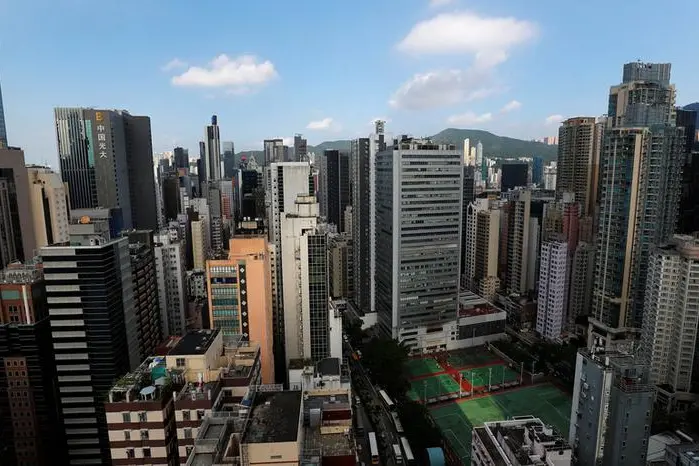PHOTO
(The author is a Reuters Breakingviews columnist. The opinions expressed are his own.)
HONG KONG - A young trader at the Hong Kong branch of a mainland brokerage learned five years ago what matters most in local finance. At a 2016 annual meeting, executives told his team just how critical access to China’s only hard currency market is: “We don’t care if you make money,” they said. “Just whatever you do, make sure you hold onto the licences.” Beijing’s focus has grown even more pronounced since, and as a result the city is becoming dangerously one-dimensional.
President Xi Jinping’s crackdown has protected Hong Kong’s financial markets. Chinese officials blame pro-democracy parties for blocking attempts to rebalance the city's economy, which features cripplingly high housing prices, decaying public services and widening gaps between rich and poor. Forced stability will clear the way for structural reform, the theory goes. The inverse looks more likely.
Citigroup, UBS and others are boosting their ranks in Hong Kong, per a Reuters report this week. Elsewhere, the news is glum. The city’s population shrank by 50,000 last year. One in ten workers is unemployed or underemployed. A recent member survey conducted by the local American Chamber of Commerce found that 42% of respondents are either considering or planning to leave.
Outflows will be bifurcated. It makes sense for multinational companies with big mainland businesses, such as Timberland-owner VF, to save money by abandoning Hong Kong and building up in Shanghai instead. Similarly, technology and media firms are wisely evacuating servers and staff to Singapore to escape Beijing’s repressive National Security Law. The broad dynamics hold true for Chinese outfits too.
That bodes ill for the all-important property market. Tourism is suffering, which helped prompt a 24% decline in retail sales last year. Beijing has turned the nearby province of Hainan into a duty-free luxury shopping zone that will compete directly with Hong Kong. In terms of trade, Victoria Harbour keeps losing volume to Shanghai and Singapore.
Finance alone cannot make up the difference. The industry contributes around 20% of Hong Kong’s $311 billion GDP, but accounts for 10% of the workforce. Sustained emigration will tank demand for housing and office space. Overdependence on banking, trading and insurance will lead to rapid stagnation, not the renaissance Beijing promises.
CONTEXT NEWS
- Goldman Sachs, Citigroup, UBS and other banks are each hiring hundreds of people in Hong Kong this year, adding substantially to their existing ranks, Reuters reported on June 4.
(The author is a Reuters Breakingviews columnist. The opinions expressed are his own.)
(SIGN UP FOR BREAKINGVIEWS EMAIL ALERTS http://bit.ly/BVsubscribe | Editing by Jeffrey Goldfarb and Katrina Hamlim) ((pete.sweeney@thomsonreuters.com; Reuters Messaging: pete.sweeney.thomsonreuters.com@reuters.net))





















